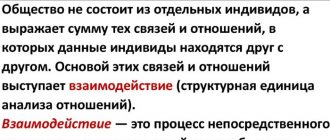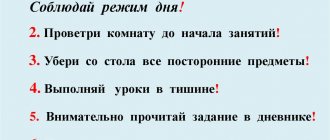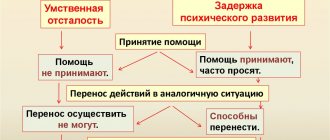Updated July 20, 2021 709 Author: Dmitry Petrov
Hello, dear readers of the KtoNaNovenkogo.ru blog. Knowledge has always been considered one of the key indicators of human intelligence and the main sign of education.
But isn't it much more valuable to have the ability to put them into practice to make life easier? Or, at least, convince your opponent that you are right.
However, in some cases you can know nothing about a particular subject or be completely wrong and still win the argument - the sophists proved this long ago!
The difference between sophism and paralogism
Before considering specific examples of sophistry, it is necessary to note: any of them constitutes an error. In addition to these philosophical tricks, there is also such a thing in logic as paralogism. Its difference from sophism is that paralogism is allowed by accident, while sophistry is a deliberate error. The speech of many people is practically replete with paralogisms. Even if a conclusion is constructed in accordance with all the laws of logic, then at the very end it can be distorted and no longer correspond to reality. Although paralogisms are allowed without malicious intent, they can still be used for personal gain - sometimes called tailoring.
Parable about the railway
An example of this type of violation of logic, such as economic sophisms, is the theory of building a railway from one large city to another. A special feature of this route was the gap at a small station between two points that were connected by the road. This gap, from an economic point of view, would help small towns by bringing in money from people passing through. But there is more than one settlement on the route of two large cities, that is, there must be many gaps in the railway to extract maximum profit. This means building a railroad that doesn't actually exist.
Interesting examples of sophistry
Unlike paralogism, sophistry is a deliberate violation of the laws of logic. At the same time, sophisms are carefully disguised as true conclusions. There are many similar examples that have survived from antiquity to the present day. And the conclusion of most of these tricks has a rather curious connotation. For example, this is what the sophism about a thief looks like: “A thief has no desire to steal something bad; acquiring something good is a good deed; therefore, the thief is doing a good deed.” The following statement also sounds funny: “The medicine that a patient needs to take is good; the more good, the better; therefore, you need to take as much medicine as possible.”
Another interesting example of sophism is the famous conclusion about Socrates: “Socrates is a man; the concept “man” is not the same as the concept “Socrates”; Therefore, Socrates is something other than Socrates.” Such sophisms were often used in Ancient Rome in order to mislead their opponents. Not being armed with logic, the sophists' interlocutors could do absolutely nothing to oppose these tricks, although their absurdity was obvious. Disputes in ancient Rome often ended in bloody fights.
Peculiarities of the teachings of the “younger” sophists
This part of the history of sophistry has not been preserved very well, so there is little reliable information about the “younger” sophists. Famous representatives of the movement were Lycophron, Alcidamas, Thrasymachus, Callicles and Critias. Their ideas were based on the following theses:
- there should be no barrier between social classes;
- elite is an artificial concept, an invention of a group of people;
- nature created every person free, there should be no slavery.
The younger sophists talked a lot about ethics and morality, as well as about freedom and rights. In particular, Thrasymachus supported the ideas of democracy, extolled atheism and criticized religions.
Tricks from mathematics
There are many known examples of mathematical sophisms. To obtain them, authors already unknown to us manipulated the values of the numbers so as to obtain the desired result. For example, you can prove that 2 x 2 = 5. This is done this way: 4 is divided by 4, and 5 by 5. Therefore, the result comes out like this: 1 / 1 = 1 / 1. Which means 4 = 5 , and 2 x 2 = 5. Resolving this example of sophism in mathematics is very simple - you need to subtract two different numbers, then identify the inequality of these two numbers.
One always had to keep one's ears open with the sophists. Among them were many wise philosophers. They masterfully mastered the art of argument and came up with mental tricks that are used to this day not only by lovers of philosophy, but also by politicians.
Reason, obstacle
Frédéric Bastiat is the author of some of the most widespread sophisms. Among them, the violation of the logic “reason, obstacle” is quite well known. Primitive man was very limited in his capabilities. Therefore, in order to obtain any thing and result, he had to solve many problems.
If we consider a simple example of overcoming a distance, we can see from it that it is difficult for a person to independently overcome all the barriers that may arise on the path of any single traveler. We live in one where the problem of overcoming obstacles is dealt with by people who specialize in this type of activity. And these people managed to make such obstacles one of their main sources of income.
The appearance of any new obstacle puzzles many people who are trying to overcome them. Therefore, the presence of obstacles is unthinkable for modern society, because they provide the opportunity to enrich each person individually, and, therefore, the entire society as a whole.
Other examples
There is also a well-known example of a trick about a crocodile that stole a child. The crocodile promised the child's father that he would return him if he guessed whether the crocodile would return the baby or not. The question in this dilemma is: what should the crocodile do if the father says that the crocodile is not going to return the child to him?
The sophism about a pile of sand is also known. One grain of sand is not a heap of sand. If n grains of sand do not form a heap of sand, then n + 1 grains of sand do not form a heap either. Therefore, no amount of grains of sand can form a pile of sand.
Another sophism is called “The Almighty Wizard.” If a wizard is omnipotent, can he create a stone that he cannot lift? If he can perform such witchcraft, then this wizard is not omnipotent, because he will not be able to lift this stone. And if he doesn’t succeed, then he’s still not omnipotent. After all, he cannot create such a stone.
Philosophy
Sophistry as a philosophical movement arose around the second half of the 5th century BC. e. The followers of this movement were people who considered themselves sages, since the term “sophist” meant “sage.” The first person to call himself this was Protagoras. He and his contemporaries, who held sophistic views, believed that everything is subjective. According to the ideas of the sophists, man is the measure of all things, which means that any opinion is true and no point of view can be considered scientific or correct. This also applied to religious views.
Examples of sophisms in philosophy: a girl is not a person. If we assume that the girl is a person, then the statement that she is a young man is true. But since the young man is not a girl, the girl is not a person. The most famous sophism, which also contains a bit of humor, sounds like this: the more suicides, the fewer suicides.
Sophistry "Epimenides"
Above were examples of sophistry with answers. However, there are also tricks that you can struggle with in vain for years, but still not find the right answer. The thinker will walk in a vicious circle, but will not be able to find the key to this riddle. An example of sophism that cannot be solved is told about the Cretan Epimenides. One day he said the phrase: “All Cretans are liars.” But the philosopher himself was also a resident of Crete. So he was lying too.
Sources and fragments of classical sophistry
No complete works have survived from most of the ancient Greek sophists, but only fragments or testimonies. Only the following texts have been preserved in more or less complete form:
- Gorgias
.
Two speeches have survived: “Praise of Helen” and “Defense of Palamedes.” Currently, these speeches are considered false. [ source not specified 68 days
] - Antiphon
. The question of the identity of Antiphon the sophist and Antiphon the orator is debated. The second belongs to several speeches (the so-called “tetralogy”), and the first - a fragment of the essay “Truth”. - Critias
. Through Sextus Empiricus, a fragment of the text “Sisyphus” has reached us. According to most modern researchers, this text does not belong to Critias. - Double speeches (English)Russian. anonymous author.
The main ancient sources about the Sophists are Plato, Aristotle, Diogenes Laertius, Flavius Philostratus and others.
All fragments and evidence about the sophists are collected in the work of Diels-Krantz. Translated into Russian only once by Makovelsky. The translation was often carried out from German, but is currently considered outdated and subject to criticism.
The paradox of the Cretan and the fate of the unfortunate philosophers
But if Epimenides is lying, does that mean his statement is true? But then he is not a resident of Crete. However, according to the condition of sophism, Epimenides is a Cretan, which means... All this means only one thing - the thinker will have to walk in a vicious circle again and again. And not only him. It is known that the Stoic Chrysippus wrote three books devoted to the analysis of this example of sophism. His famous colleague named Philetus of Kos was unable to overcome the logical problem and committed suicide.
And the famous logician Diodorus Kronos, already in his old age, made a vow not to eat until he managed to solve this problem. Diogenes Laertius writes about this incident. According to the historian, when the sage Diodorus was at the court of Ptolemy, he was asked to solve this sophism. Since the philosopher could not cope with him, Ptolemy nicknamed him Kronos (in translation, this word not only means the name of the ancient god of time, but also simply “fool, blockhead”). There were rumors that Diodorus died either from hunger, or because he could not withstand such shame. Thus, taking sophistry too seriously cost someone their life. However, you should not be like the ancient philosophers and take sophisms too seriously. They are good exercises for developing logic, but they are not worth risking your career, much less your life.
History of the term
Sophistry began to interest people many centuries ago. Aristotle also spoke about this: sophistry is an imaginary proof that appears due to a lack of logical analysis, because of which the judgment acquires a subjective character. Convincing arguments are used for camouflage purposes and are designed to hide the logical error that is always present in any sophistic statement.
Sophism
Understanding what sophistry is is not so difficult. It is enough to turn to the example of an ancient violation of logic: “You have what you did not lose. Lost antlers? So you have horns." In this case there is an omission. If you add a new word to the phrase, you can get the following: “You have everything that you did not lose.” With this interpretation, the conclusion becomes correct, but it no longer seems interesting. The first followers of sophistry said that a statement must satisfy the main requirement - the worst argument must turn into the best, and an argument is needed in order to win it, and not to find the truth.
According to the sophists, any opinion can be considered true, but then the law of contradiction , which Aristotle later formulated, is negated. All this subsequently led to the emergence of many varieties of sophisms in different sciences.
Prerequisites for the emergence
In 146 BC. e. Hellas became dependent on the Roman Empire. Gradually, Greek culture became more and more closely intertwined with Roman culture. This concerned not only literature, but also music, architecture, even in religious matters, the influence of Greece at that time was enormous and extended to most of the empire. In the 1st and 2nd centuries AD. e. In Greece and Rome, the prerequisites arose for the revival of oratory and the education system in general; this surge is largely due to the intertwining of both cultures. Rome began to encourage study in Athens and other Greek cities, which allowed Greek philosophers to feel greater freedom and self-confidence, as learned Greeks began to be considered an honorable part of the society of the empire, but retained their cultural identity. The development of philosophical thought in Rome allowed the Romans to consider themselves among the heirs of ancient Greek philosophy. Thus, the second sophistry allows us to talk about the emergence of Greco-Roman culture. Knowledge of two languages during this period becomes an important sign of education.
Notes
- Sophists / A.F. Losev // . - M.: Soviet Encyclopedia, 1969-1978. - (: / chief editor A. M. Prokhorov; 1969-1978).
- Anthology of world philosophy: in 4 volumes. Vol. 1, part 1: Philosophy of antiquity and the Middle Ages Ed. board: V.V. Sokolov (editor-compiler) and others. - M.: Mysl, 1969. - P. 315.
- Plato. Gorgias / Collected works in 4 volumes, T. I - M.: Mysl, 1990. - P. 489.
- ↑
- Plato "Protagoras"
- Diogenes Laertius
. About the life, teachings and sayings of famous philosophers - M., 1986. - P. 348−349. - Lebedev A.V.
// New philosophical encyclopedia / Institute of Philosophy RAS; National social-scientific fund; Pred. scientific-ed. Council V. S. Stepin, deputy chairmen: A. A. Guseinov, G. Yu. Semigin, student. secret A. P. Ogurtsov. — 2nd ed., rev. and additional - M.: Mysl, 2010. - ISBN 978-5-244-01115-9. - Complete Works of Diogenes Laertius (Delphi Ancient Classics Book 47) - Delphi Classics, 2015
- Sextus Empiricus. Against the logicians, book. VII /Works in 2 volumes. T.1. - M.: Mysl, 1975. - P. 72-73.
- Sextus Empiricus. Against the logicians, book. VII / Works in 2 volumes. T.1. - M.: Mysl, 1975. - P. 70-71.
- Sextus Empiricus. Against the logicians, book. VII / Works in 2 volumes. T.1. - M.: Mysl, 1975. - P. 73.
- Marx K., Engels F. Works. 2nd ed. - T. 1. - P. 99.
- DK 74 B 4
- Canto-Sperber M.
Greek philosophy. Pre-Socratics.. - 2006. - T. 1. - ISBN 978-5-87245-121-0.











